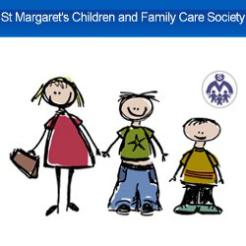A Catholic adoption charity has failed the Scottish charity test after its service was deemed directly discriminatory against same-sex couples and those not of the Catholic faith by the charities regulator.
OSCR will remove the St Margaret's Children and Family Care Society from its register if it does not take steps to comply with the Equality Act 2010 and prove public benefit by 22 April 2013.
An inquiry into the charity was raised after OSCR received a complaint in May 2011 from the National Secular Society that St Margaret's was in breach of the Act by expecting applicants to have been married for at least two years. As same-sex couples can not yet officially marry anywhere in the UK, the expectation discriminated against this demographic, the regulator found.
OSCR assessed the charity's initial enquiry stage, which applies 'preferred criteria' to decide whether applicants can be put forward for full assessment. Those satisfying the criteria, which include being a member of a couple, being Catholic and being married for at least two years, were given greater priority for assessment. OSCR said in its report:
"Our view is that the 'preferred criteria' operated by the charity result in less favourable treatment to people sharing the following protected characteristics:
"Sexual orientation - since marriage (as opposed to civil partnerships) is not available to gay or lesbian couples the less favourable treatment for unmarried couples amounts to direct discrimination against same sex couples on the grounds of their sexual orientation."
The regulator added that the charity also discriminated on the grounds of 'religion or belief', of which it said: "On the face of it, the less favourable treatment which the charity's guidelines suggest it gives couples who do not wish to adopt within the Roman Catholic faith...amounts to direct discrimination on the basis of religion. However the evidence we have been able to obtain from the charity as to how strictly they operate this aspect of the preferred criteria has been limited."
Charity exemptions not applicable
Under the 2010 Act a charity can restrict the benefits it provides to people with protected characteristics, such as sexual orientation or religion, using charity exemptions. But OSCR ruled that these exemptions - that the charity is acting "in pursuance of their charitable instrument (constitution)" through "proportionate means of achieving its legitimate aim" - did not apply in the case of St Margaret's.
The charity claimed that in applying its initial criteria it was increasing the number of successful applicants, which it believed would be a "legitimate aim", however OSCR advised that:
"Increasing the number of successful placements would be a legitimate aim, but it is not clear that the operation of the preferred criteria, and removal of homosexual potential adoptive parents from consideration, is actually a means of achieving this, let alone a proportionate means."
Further, the regulator noted a "mismatch" in the national adoption system where the majority of those on the National Adoption Register are aged over four, while the majority of prospective parents wish to adopt children under four. "Clearly, any action which was aimed at better matching the needs of children with the supply of potential adopters willing to take them would be in the interests of those children and a legitimate aim," said OSCR.
The charity, which has the right to appeal the regulator's decision, said in a statement: "We will fully study the regulators determination and take appropriate legal advice before deciding how to proceed."
The National Secular Society, which brought the issue to the attention of OSCR welcomed the regulator's decision. It told civilsociety.co.uk today: "A key fact which has just come to our attention is that the other Roman Catholic adoption agency in Scotland, St Andrew's Children's Society appears to have no difficulty whatsoever in following the law – and we commend them for equal opportunities for sexual orientation, marital status and religion and belief including non-belief."
Catholic Care case
This Scottish decision follows a similar long-running dispute in the South which saw Catholic Care undertake a failed appeal against the Charity Commission in the Upper Tribunal, after the regulator refused to allow the charity to change its governing document to allow it to discriminate against same sex couples in its adoption service.
Alistair McBay, spokesperson in Scotland for the National Secular Society, said: “After the ruling in England by the Charity Commission, backed by the courts, that Catholic adoption agencies there were in breach of the Equality Act by denying their services to gay couples, it is logical that the Scottish charity regulator has reached the same decision about St Margaret’s.
“Sectarian decision-making has no place in adoption arrangements, and the regulator also found that St Margaret’s was discriminating against non-Catholic couples who applied to adopt. This kind of crude discrimination is no longer acceptable in our society – and that goes double where the discrimination is, in effect, being largely financed by the public purse."
In July 2012 the Scottish government announced its intention to introduce same-sex marriage. In December it launched a consultation on a draft Bill to enable it to do so which has received cross-party support in the Scottish Parliament. The consultation will close on 30 March 2013.









